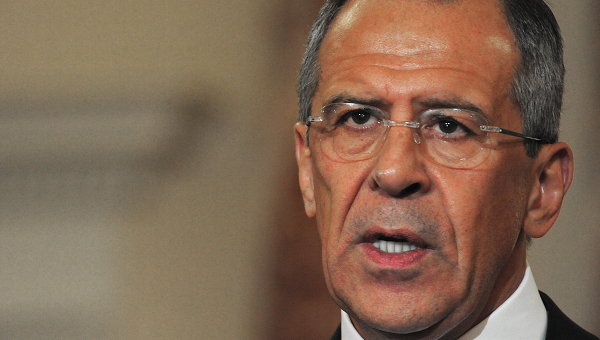
Speaking after talks in a Paris hotel with US Secretary of State John Kerry, Lavrov said ensuring the success of the proposed peace conference was "not an easy task, it's a very tall order."
The two men have been working to organise the talks under the aegis of the United Nations to bring together the Syrian regime and the opposition in a bid to end a bloody conflict that has raged for more than two years.
The push to bring the warring sides together is ever-more pressing in a conflict that has claimed more than 94,000 lives, amid reports of "horrific" rights violations and mounting evidence that chemical weapons are being used.
Lavrov said the aim was to try to stop the bloodshed in the war. No date or venue has yet been agreed for the talks, which aim to build on a similar initiative called "Geneva 1" held in June last year.
"Both of us, Russia and the United States, are deeply committed, remain committed to trying to implement the Geneva 1 principles which require a transitional government by mutual consent," Kerry said.
In Brussels, meanwhile, European Union foreign ministers failed to hammer out an agreement on whether to supply weapons to Syria's rebels when an arms embargo expires this week.
"It was not possible to find a compromise with France and Britain," said Austria's Foreign Minister Michael Spindelegger, whose country was sharply opposed to calls by London and Paris to lift the EU arms embargo.
He made the statement as foreign ministers from the 27-nation bloc broke off for dinner after nine hours of talks. They were then due to get back together to agree on a statement.
The talks had been "difficult," agreed British Foreign Secretary William Hague, though "the discussion was constructive". He added there was "no solution yet."
Both EU and German officials said it was "premature" to declare failure. "The work will continue despite Spindelegger's declaration," said a German official. "There is still the chance for a political consensus."
These international diplomatic efforts come against a background of growing divisions within the Syrian opposition, as fighting rages on the ground between rebels and regime troops now aided by the Lebanese Shia group Hezbollah.
While the Syrian regime has agreed "in principle" to attend the so-called "Geneva 2" peace initiative, the key opposition Syrian National Coalition is still divided over whether to participate.
Russia and the US back opposite sides in the conflict, with the United States expressing growing concern over Russian arms sales to the regime of President Bashar alAssad.
But Kerry has warned that unless the two sides come to the table, the world will witness "the continued tragic disintegration of a country that will go down further into more violence and more bloodshed and more destruction."
French Foreign Minister Laurent Fabius, who was to host a dinner later with Kerry and Lavrov, said there were "mounting suspicions" that chemical weapons were being used in Syria, as UN human rights chief Navi Pillay decried the "horrific" level of rights violations.
And with the much-publicised involvement of Hezbollah threatening to pull Lebanon deep into the conflict, peace talks are becoming increasingly pressing.
Lavrov said he believed those who took part in the first Geneva talks -- the five permanent members of the UN Security Council, Iraq, Turkey and others -- would be invited to the next session.
"We believe that this circle could be extended to involve all key outside players who have interest in the situation," he added.
He did not mention any countries by name. Russia has been pushing for Syria ally Iran to be included, but many Western nations remain wary of the idea.
As the talks and negotiations rumbled on, opposition fighters on the ground battled regime troops aided by Hezbollah for control of the key rebel stronghold of Qusayr.
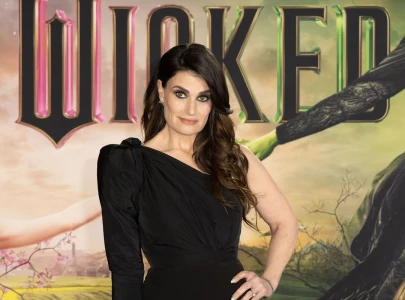




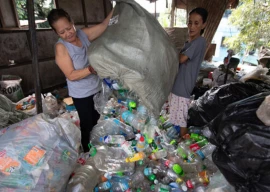
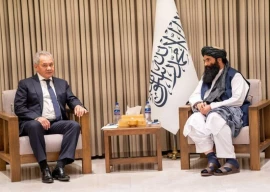
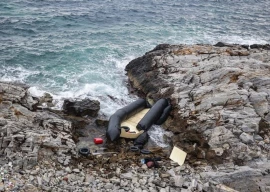
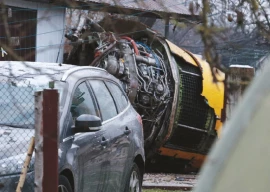
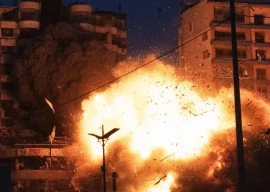
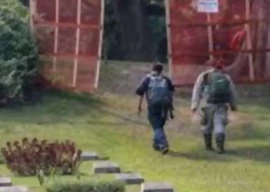






COMMENTS
Comments are moderated and generally will be posted if they are on-topic and not abusive.
For more information, please see our Comments FAQ